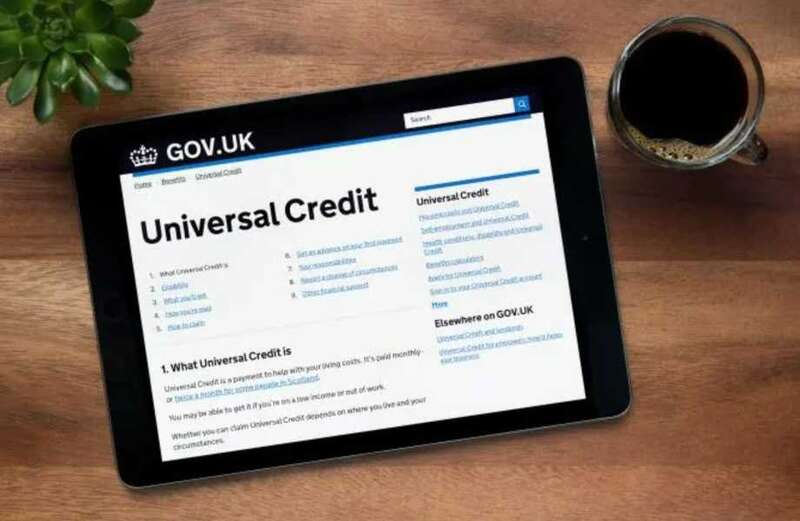MILLIONS of households had a boost to their Universal Credit payments in April.
If you are on Universal Credit and were expecting some extra cash this month but didn't get it - we explain why.

Universal Credit and other benefit payments rose on April 8 in line with September's inflation rate of 6.7%.
Each year in April, benefits are usually increased to keep up with the increasing cost of living.
The rise of Universal Credit in April means that a typical family on the benefit gets a £470 a year income boost, which is the equivalent of an extra £39 a month.
 Are there illegal baby names? Surprising monikers that are BANNED in other countries, from Sarah to Thomas
Are there illegal baby names? Surprising monikers that are BANNED in other countries, from Sarah to Thomas
But the exact amount your benefits rise depends on what you're receiving, and when you should expect to see the uplift also varies.
We explain everything you need to know.
When will I see my Universal Credit payment increase?
Universal Credit payments rose in April, but some households will be waiting longer than others to see the extra cash in their bank.
The exact amount your Universal Credit will rise by depends on what you're currently getting.
When you will receive the cash boost will also differ between households, as it depends on when you were assessed.
Universal Credit is paid monthly and is based on your circumstances each month.
This period is called your "assessment period" and it starts the day you make your claim.
The new Universal Credit rates will not come into effect until the first assessment period, which starts on or after April 8.
Those whose assessment periods started before April 8 will see the benefits rise in May however, those whose assessment period started after this date won't see it until June.
So, if you were expecting to see an increase this month and are wondering why you haven't - this could be why.
 All about Rachel Nickell who was murdered in front of her son Alex Hanscombe
All about Rachel Nickell who was murdered in front of her son Alex Hanscombe
How much will I get?
Here's a full breakdown of how much Universal Credit payments have increased so you can get an idea of how much you could expect to get.
Standard allowance (per month)
- For those single and aged under 25, the standard allowance rose from £292.11 to £311.68
- For those single and aged 25 or over, the standard allowance rose from £368.74 to £393.45
- For joint claimants both under 25, the standard allowance rose from £458.51 to £489.23
- For joint claimants where one or both are 25 or over, the standard allowance rose from £578.77 to £617.60
Extra amounts for children
- For those with a first child born before April 6, 2017, the extra amount will go up from £315 to £333.33
- For those with a child born on or after April 6, 2017, or second child and subsequent child, the extra amount will go up from £269.58 to £287.92
- For those with a disabled child, the lower rate addition payment will rise from £146.31 to £156.11 and the higher rate from £456.89 to £487.58
Extra amounts for limited capability for work
- For those deemed to have limited capability for work (LCW), the lower rate amount will go up from £146.31 to £156.11
- The higher rate for LCW will go up from £456.89 to £487.58
- For those deemed to have limited capability for work or work-related activity, the extra amount will go up from £390.06 to £416.19
Extra amounts for being a carer
Universal Credit claimants can receive an additional amount if they care for a severely disabled person for at least 35 hours a week.
This payment rose from £185.86 to £198.31.
Increased work allowance
The higher work allowance (no housing amount) for someone claiming Universal Credit with one or more dependent children or limited capability for work will go up from £631 to £673.
The lower work allowance for someone claiming Universal Credit with one or more dependent children or limited capability for work will increase from £379 to £404.
How do I claim for Universal Credit?
To qualify for Universal Credit you need to be on a low income or in need of some help with living costs.
This does not mean that you have to be out of work, many people who are in low income jobs also claim Universal Credit.
You must also meet the following criteria. You must:
- Live in the UK
- Be aged 18 or over
- Be under State Pension age
- Have £16,000 or less in money, savings and investments
You can find a full list of what the requirements are on the Government's website.
If you are in work, or planning to get back into work while claiming Universal Credit it is worth noting that as your earnings increase, your payments will decrease.
If your earnings change from month to month, you may find you need to keep reapplying for Universal Credit.
You can find out exactly how much you can earn without reducing your payments or losing them altogether with our step-by-step guide.
If you are eligible, you have to make a claim, which can be done online or by calling the Universal Credit helpline on 0800 328 5644.
You'll need a number of documents to hand too - for the full list, you can read our explainer.
Do you have a money problem that needs sorting? Get in touch by emailing money-sm@news.co.uk.
Plus, you can join our Sun Money Chats and Tips Facebook group to share your tips and stories



































